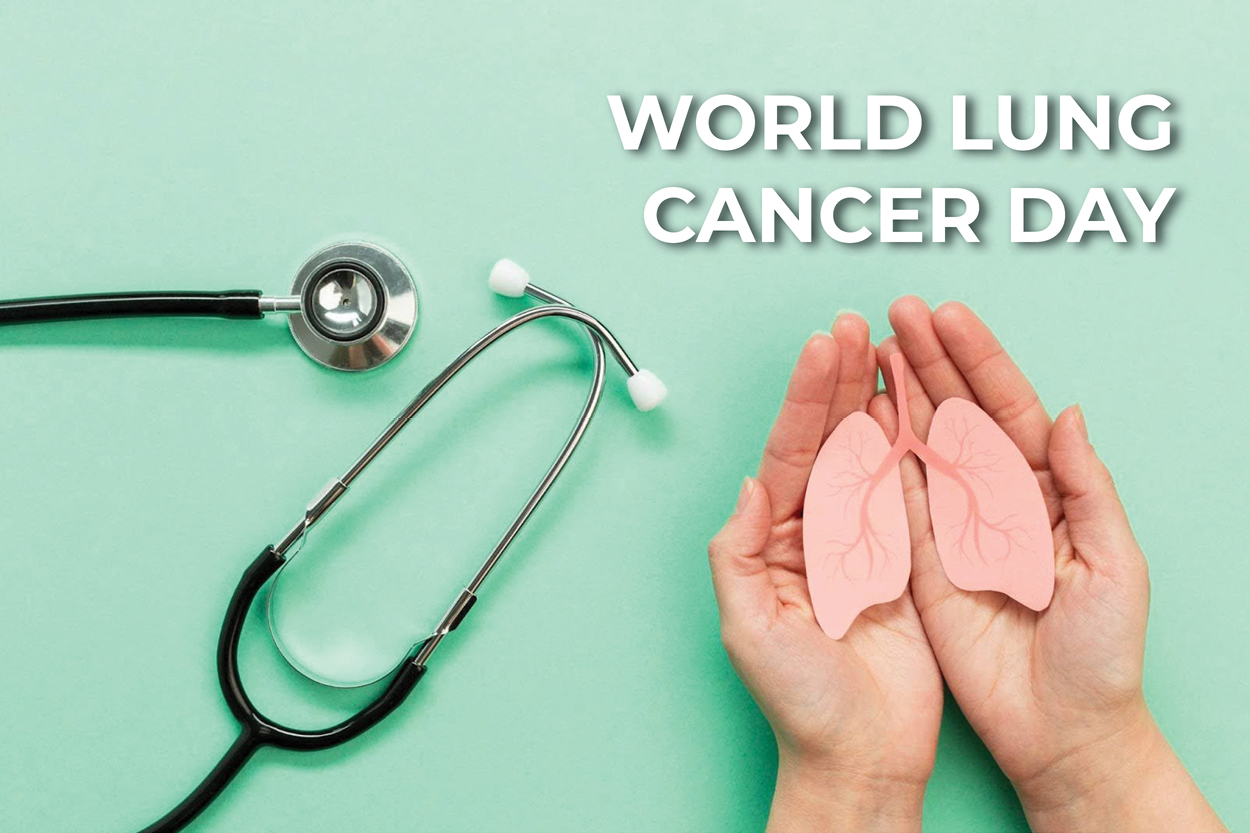Since 2012, World Lung Cancer Day has been observed every year on August 1st every year. This day is dedicated to raising lung cancer awareness and emphasizing the urgent need for more research funding. Lung cancer is a leading cause of cancer deaths, accounting for one in four cancer-related fatalities. Therefore, spreading information about lung cancer is crucial for prevention and early detection.
Understanding Lung Cancer
Causes:
- Smoking: The primary cause of lung cancer
- Secondhand Smoke: Exposure to others' smoke
- Family History: Genetic predisposition
- Radon Gas Exposure: A naturally occurring radioactive gas
- Carcinogen Exposure: Contact with cancer-causing substances
While smoking is the most significant risk factor, it's important to recognize other potential causes. Even non-smokers can be at risk due to secondhand smoke, genetic factors, and environmental exposures.
Symptoms:
- Chest Pain
- Pain While Breathing
- Shortness of Breath
- Coughing Up Blood
- Rapid, Unexplained Weight Loss
Experiencing these symptoms does not necessarily mean you have lung cancer, but it is essential to consult a doctor if you notice one or more of these signs. Early detection of lung cancer significantly improves the chances of successful treatment.
The Importance of Lung Cancer Screenings
Early detection through screenings can save lives. If you are at higher risk due to smoking, exposure to secondhand smoke, or other factors, discuss lung cancer screening with your doctor. Screenings can help identify lung cancer in its early stages, leading to more effective treatment options.
Take Action This World Lung Cancer Day
- Educate Yourself: Learn about the causes and symptoms of lung cancer
- Raise Awareness: Share information about lung cancer with your community
- Get Screened: If you are at high risk, talk to your doctor about lung cancer screenings
Astera Cancer Care is committed to supporting lung cancer awareness and promoting early detection. We offer numerous lung cancer clinical trials, which help doctors find better treatments for cancer and other diseases. Clinical trials also help doctors learn how to prevent disease or treat symptoms and side effects. You can find a list of clinical trials here. Speak with your physician to find out if you are a candidate for a clinical trial or advanced treatment.

